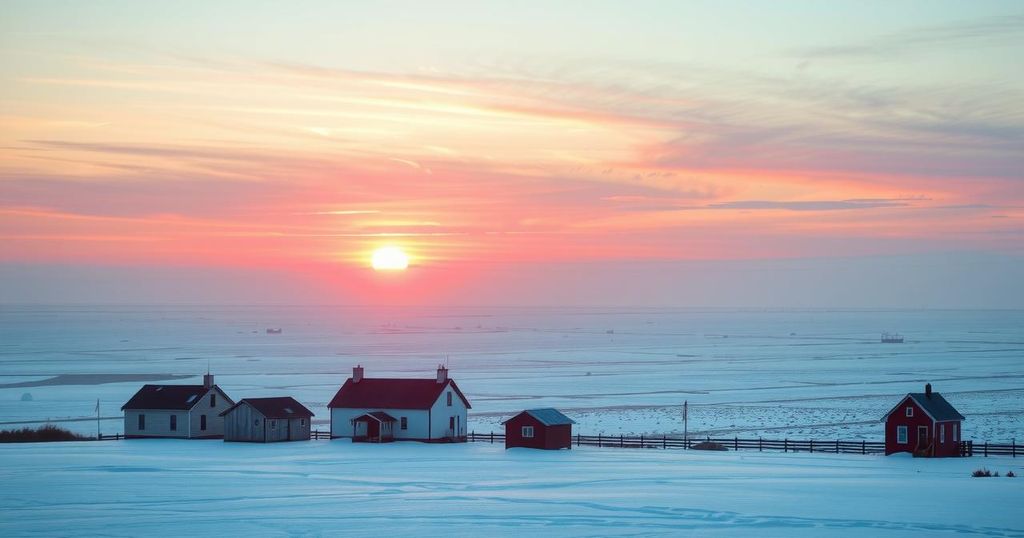Greenland’s Elections: Paving the Path to Independence Amid U.S. Interest
Greenland held early parliamentary elections amid discussions of independence from Denmark, with polls indicating strong public support for this movement. Voters elected 31 lawmakers who will play a crucial role in the island’s future. Despite the U.S. interest in Greenland’s strategic value and resources, residents emphasize their autonomy and reject becoming part of the United States. The election reflects broader themes of self-determination and regional identity.
On Tuesday, polls opened in Greenland for early parliamentary elections amidst increasing discussions surrounding the region’s independence. The self-governing territory of Denmark is strategically located in the North Atlantic and is home to approximately 56,000 inhabitants, primarily of Indigenous Inuit descent. Observers note that Greenland possesses rare earth minerals, which are essential for the global economy.
While unofficial election results are expected shortly after polls close at 2200 GMT, certified results may take weeks due to the logistical challenges of transporting ballots from remote communities. Although the topic of independence is prominent, it is not the central focus of the election; instead, voters will choose 31 lawmakers to influence Greenland’s future trajectory regarding independence from Denmark.
The atmosphere at the polling station in the capital city of Nuuk was celebratory as voters gathered to cast their ballots. Current opinion polls indicate considerable support for independence among Greenlanders. Although they have friendly relations with the U.S., particularly due to the Pituffik Space Base, many Greenlanders are adamant about maintaining control over their destiny. Doris Jensen from the Siumut party emphasized that recent global changes necessitate a more expedited approach to independence.
Voter sentiments regarding the U.S. have shifted, with Sofia Rossen expressing frustration over Trump’s focus on Greenland, asserting that the island’s future is a matter for its inhabitants to determine. The tone of the election reflects a broader apprehension about international attention, with calls for a stronger connection to Europe to secure Greenland’s sovereignty.
The political climate in Greenland is distinct, with a more tempered approach to debates. As political parties engaged with citizens outside polling stations, they offered local delicacies to entice voters. Given the absence of roads connecting communities across the vast territory, the process of certifying election results will require significant time and effort.
Despite the harsh environmental conditions that might limit mineral extraction feasibility, residents remain optimistic about the potential economic benefits rare earth minerals could offer. On election day, with favorable weather conditions, high voter turnout is anticipated, reflecting the importance of this pivotal moment in Greenland’s political landscape.
The early parliamentary elections in Greenland mark a significant moment in the region’s pursuit of independence from Denmark. With growing support for independence and concerns over external influences, the people of Greenland are determined to shape their own future. The logistical challenges of the election process highlight the complexities of governance in such a vast area, yet the optimism among voters reflects a desire for greater autonomy and economic diversification through their natural resources.
Original Source: www.pbs.org




Post Comment